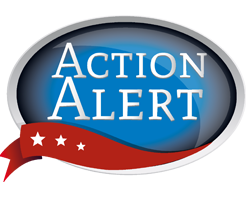 H.R.4863 - United States Export Finance Agency Act
H.R.4863 - United States Export Finance Agency Act

H.R.4863 - United States Export Finance Agency Act
The House passed (235-184) H.R.4863. The bill reauthorizes the U.S. Export-Import Bank's charter for 10 years, through Sept. 30, 2029, and increases the bank's cap on loans, guarantees and insurance that the bank may have outstanding at any given time from $135 billion to $175 billion over seven years. It also changes the name of the agency to the "United States Export Finance Agency," creates an Office of Minority and Women Inclusion within the bank, establishes alternate procedures for the bank to operate when the bank's board lacks a quorum, and restricts the bank's ability to finance and insure exports to Chinese state-owned enterprises. Democrats and many Republicans argue that the bank remains necessary to help U.S. companies compete against foreign interests, while conservative Republicans contend it allows the government to pick winners and losers and amounts to "crony capitalism" and "corporate welfare."
Supporters
Supporters of the bill include most Democrats and many Republicans, small businesses and some larger companies such as Boeing, GE and Caterpillar. They argue that eliminating the bank would amount to "unilateral disarmament" given that foreign nations have been increasing financial support to their firms. Competitors such as Japan, Germany and Canada in particular provide far more support despite having much smaller economies, while China now provides close to ten times as much as the U.S. Many small and medium-size U.S. businesses say they can't obtain necessary financing from private sources, particularly for exports deemed more risky. They note that when the bank was effectively shut down the past few years, GE announced plans to shift U.S. manufacturing jobs to Europe and China because it could no longer access Ex-Im financing, transferring 400 jobs and the production of gas turbines to Belfort, France, in exchange for a line of credit from France's export credit agency.
Other supporters say it is natural Boeing receives the largest support from the bank simply because it is the nation's largest exporter, but note Boeing is still at a disadvantage since international competitors such as Airbus and Bombardier provide far more concessionary financing — a fact confirmed by the WTO in a series of rulings. Boeing notes that the company itself does not receive financing from the bank; rather, its customers obtain the financing in order to make purchases. Finally, bank supporters argue that many who say the government should not be in the business of supporting manufacturers are all too happy to accept support for agricultural products, noting that some bank opponents such as the Koch brothers are perfectly willing to accept similar subsidies from German export agencies.
Opponents
Opponents of the bill include conservative Republicans, who oppose the Export-Import Bank on ideological grounds, as well as some U.S. companies. They claim that the bank's support for U.S. exports amounts to "crony capitalism" and "corporate welfare" and that, at a time of exploding federal deficits wealthy multinational firms should be the last entities that receive unnecessary government aid. They note that on a total dollar basis, Boeing, GE and Caterpillar receive the vast majority of Ex-Im loan guarantees, while small businesses received just a fraction of Ex-Im aid. The vast majority of exporters do not receive assistance from the bank, they note, adding that export financing does not create new jobs but merely redistributes them across the American economy.
Opponents say Ex-Im effectively picks winners and losers, rather than allowing companies to compete freely in an open market. They argue that the bank unfairly helps foreign airlines buy planes from Boeing and puts U.S. airlines such as Delta at a competitive disadvantage since they can't buy those aircraft on the same favorable terms. They point to reports that indicate a higher level of risk at the bank than the bank indicates in its quarterly reports, and say that if the bank's profitability were rated using commercial accounting standards rather than federal standards it would be shown to be losing taxpayer money. Finally, some argue that the bill doesn't go far enough in preventing Ex-Im Bank support for exports to Chinese state-owned enterprises, thereby having U.S. taxpayers effectively subsidize Chinese firms bent on destroying U.S. jobs, while others argue that the bank should not finance any projects that help develop fossil fuels and that too many bank-supported projects contribute to global warming.

